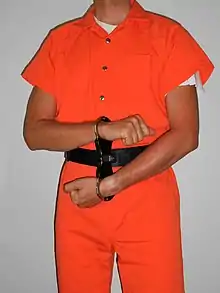| Type | Private |
|---|---|
| Industry | Forced Compliance Weapons |
| Genre | Law Enforcement Supplies |
| Founded | Appleton, Wisconsin, United States (1976) |
| Founder | Kevin Parsons |
| Headquarters | Appleton, Wisconsin , United States |
Area served | Worldwide |
Key people | Kevin Parsons, founder, Chairman and CEO |
| Products | Tactical batons, Handcuffs, OC Products, Lighting, Training |
| Services | Police Use of Force Training |
| Website | www |
Armament Systems and Procedures, Inc. (ASP, Inc.) is a US defensive compliance weapons manufacturer providing equipment to law enforcement and private security companies. ASP telescoping batons are widely used by law enforcement agencies worldwide.
History
- 1976—company founded. Agencies such as the US Secret Service use ASP batons as an intermediate non-lethal weapon.
- 1987—launched the ASP training division with the inaugural Tactical Baton Seminar, held in Atlantic City
- 1995—entered the pepper spray business with the introduction of the Defender.
- 1996—entered the police flashlight business.
- 2004—designed and engineered restraints.
- 2019—The Armament Systems and Procedures' Transport Kit wins 2019 Public Safety Product Innovation Award.[1]
Customers
- Federal Bureau of Investigation[2]
- Chicago Police Department[3]
- Virginia State Police[4]
- Portland Police[5]
- Butler Township[6]
- Salina Police Force[7]
- Vancouver Police Department[8]
- Edmonton Police Department[9]
- Garda Síochána[10]
- Metropolitan Police Service[11]
- Salt Lake City Police Department[12]
- Seattle Police
ASP telescopic baton

ASP manufactures telescopic batons. An assessment by law enforcement officers found them preferred to the usual straight baton for their portability, convenience, effectiveness, usability, and psychological impact.[13]
Since the early 1990s, ASP batons have been adopted by law enforcement agencies in the United States, United Kingdom, Canada, New Zealand and Australia. Expandable batons in general are sometimes referred to as "Asps".
The batons come in three sizes: 16 inches (410 mm), 21 inches (530 mm) and 26 inches (660 mm),[14] and the company has adopted a European measurement standard. They are available with several variations, such as color (black being the most common, but some have nickel-plated shafts), grip pattern and material, and metal composition, the most common being 4140 high carbon steel, with an "airweight" line using a light-weight alloy with a combination of steel and aluminum.
ASP batons are friction-lock in design, and are opened by swinging the handle forcibly through the air. To close this type, the baton's tip is driven into a hard surface to break the friction. A version introduced in 2010 but since discontinued is called "LeverLoc", opened the same way was as friction-lock, but closable by twisting the shafts with both hands, and slightly longer when collapsed state due to the mechanism; a LeverLoc designed for plainclothes concealment was also produced. The friction-lock Airweight series (P12 and P16), for plainclothed concealment, was released in 2012.
Other products

The company produces restraints such as handcuffs and plastic ties, 19 different types of flashlights,[15] and other weapons accessories, including customization options.
References
- ↑ "ASP's Transport Kit wins 2019 Public Safety Product Innovation Award". Corrections One. Police One. Retrieved 1 October 2019.
- ↑ "Less Than Lethal Device Policy". Federal Bureau Of Investigation. FBI / Government of USA. Retrieved 1 October 2019.
- ↑ "Equipment Directive". Chicago PD. Chicago PD. Retrieved 1 October 2019.
- ↑ "ASP Instructor Certification School State Police Academy" (PDF). Virginia State Police. Virginia State Police. Retrieved 1 October 2019.
- ↑ "Portland Police Using New Nightstick". The Seattle Times. Associated Press. Retrieved 1 October 2019.
- ↑ "Police department invests in training" (PDF). Butler Township. Butler Township. Retrieved 1 October 2019.
- ↑ "SALINA POLICE DEPARTMENT Number GENERAL ORDER". SALINA POLICE DEPARTMENT. Retrieved 1 October 2019.
- ↑ "Vancouver Police" (PDF). ASP. Vancouver Police Department. Retrieved 1 October 2019.
- ↑ "TR-02-2003 "Collapsible Baton"" (PDF). Public Safety Canada. Government of Canada. Retrieved 1 October 2019.
- ↑ O'Brien-Olinger, Sam (2016). Police, Race and Culture in the 'new Ireland': An Ethnography. London: Palgrave MacMillan. pp. 205, 215. ISBN 978-1-137-49044-5. Retrieved 1 October 2019.
- ↑ Casey-Maslen, Stuart; Connolly, Sean (2017). Police Use of Force under International Law. Cambridge. p. 157. ISBN 978-1-316-51002-5. Retrieved 1 October 2019.
- ↑ "Salt Lake City Police Department Policies and Procedures Manual" (PDF). Salt Lake City Police Department. Salt Lake City Police Department. Retrieved 1 October 2019.
- ↑ Johnston, J.A. "A.S.P. Tactical Baton Assessment" (PDF). Retrieved 2019-10-02.
- ↑ "Batons". Armament Systems and Procedures. ASP Inc. Retrieved 2 October 2019.
- ↑ "Tactical Lighting". ASP Inc. Armament Systems and Procedures. Retrieved 2 October 2019.